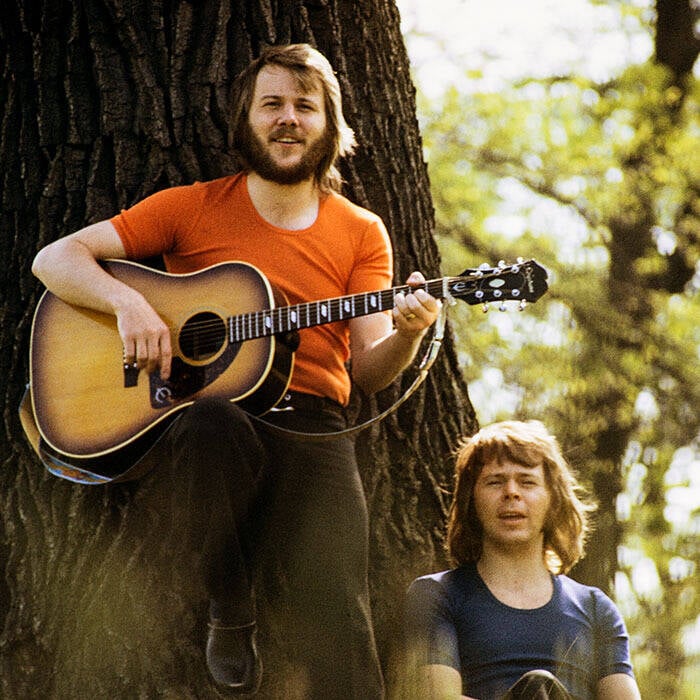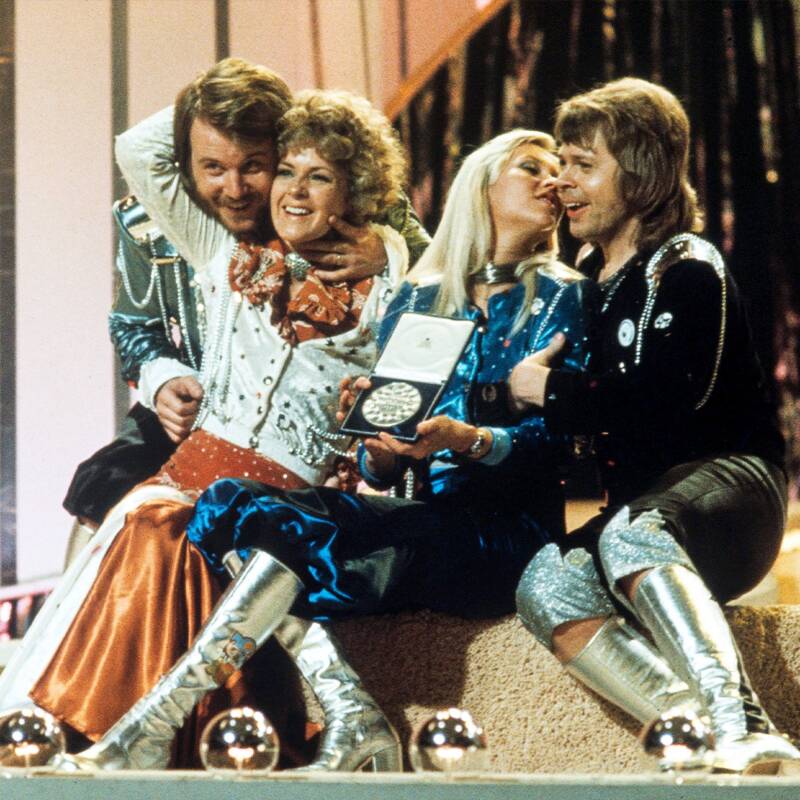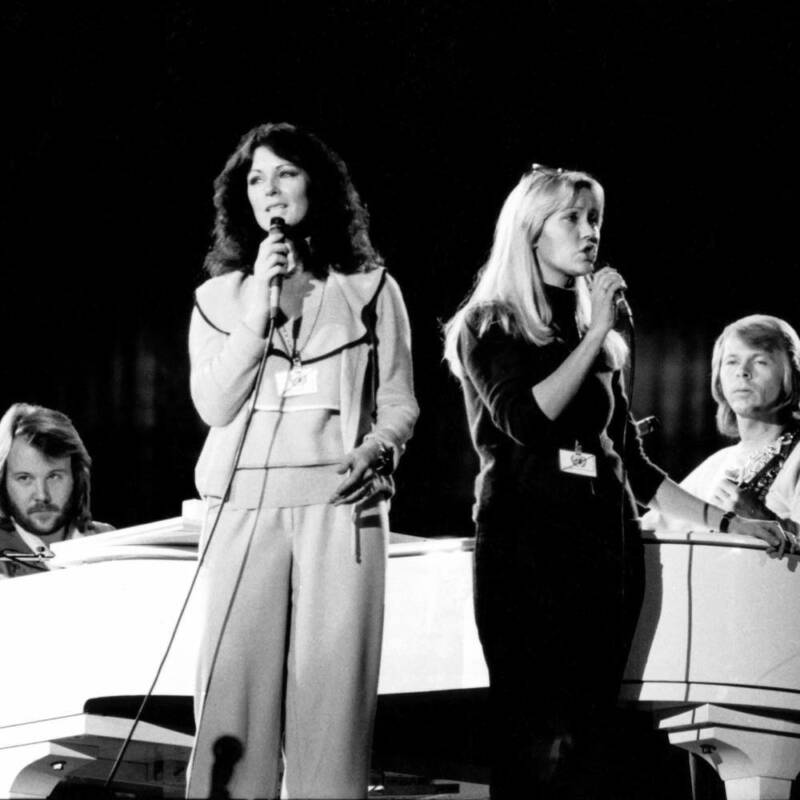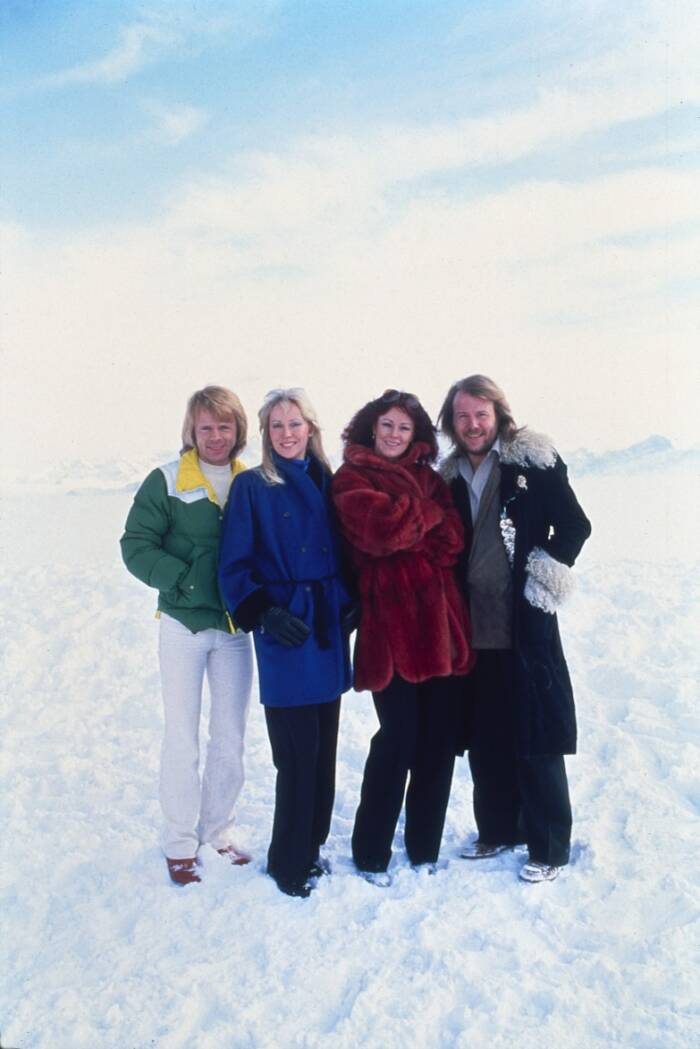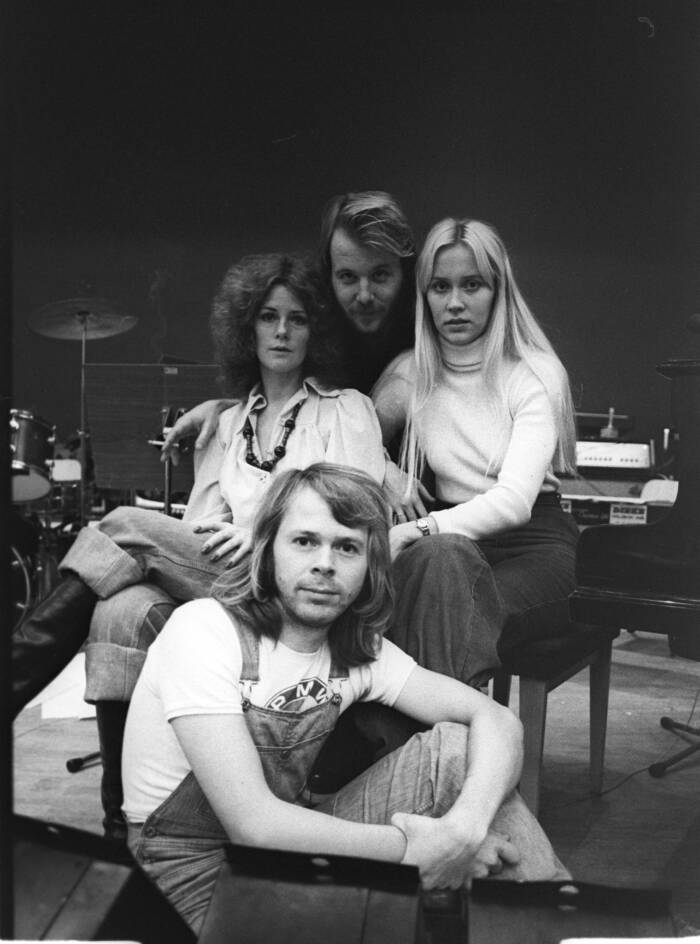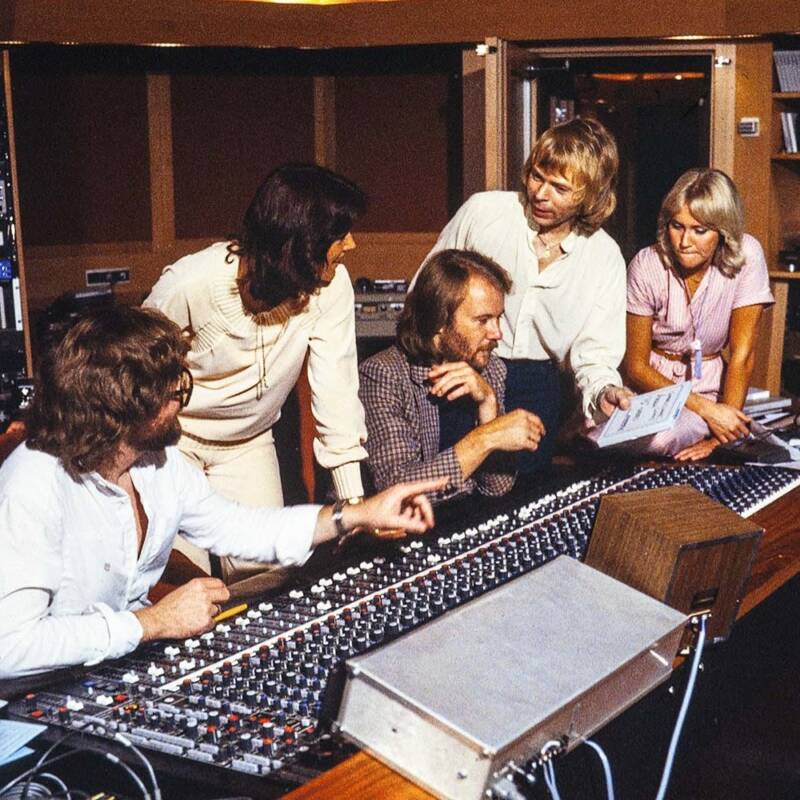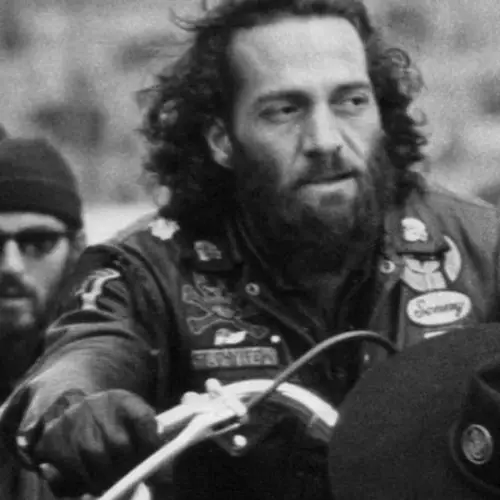After winning the Eurovision Song Contest in 1974, Agnetha Fältskog, Björn Ulvaeus, Benny Andersson, and Anni-Frid Lyngstad became worldwide pop stars — but this fame would contribute to ABBA's breakup in 1982.
ABBA is undoubtedly one of the most successful pop groups in history. Indeed, photos of ABBA from their prime don’t begin to capture the international craze they sparked with hits like “Dancing Queen” and “Mamma Mia.”
Although the band split up in 1982, their legacy endures through the 1999 musical Mamma Mia! and the two film adaptations it spawned, 2008's Mamma Mia! and 2018's Mamma Mia! Here We Go Again. While those movies don't actually serve as biographies of the band — unlike Bohemian Rhapsody or Elvis, for instance — the story of the Swedish quartet's rise from humble beginnings in Stockholm to global superstars may very well be worthy of a biopic one day.
The influence of Agnetha Fältskog, Björn Ulvaeus, Benny Andersson, and Anni-Frid Lyngstad on pop music is still as relevant today as it was when they first formed in the early 1970s.
Above, look through photos of ABBA's journey to international stardom. And below, read about the band's inspiring yet tumultuous history.
Photos Of ABBA's Early Years As Björn & Benny, Agnetha & Anni-Frid
The story of ABBA began in the late 1960s, when two separate musical partnerships formed.
The first was a collaboration between musicians Björn Ulvaeus and Benny Andersson, who met in 1966 when they were each performing in other acts. Ulvaeus was, at the time, a member of the folk group the Hootenanny Singers. Andersson, meanwhile, was playing keyboard for the Hep Stars, one of Sweden's biggest pop groups of the '60s.
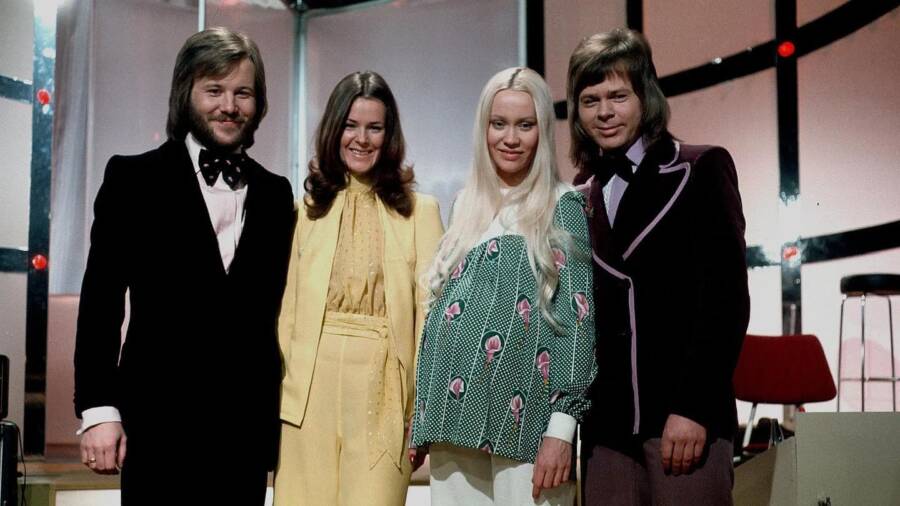
ABBA/FacebookBefore going by ABBA, the group performed as Björn & Benny, Agnetha & Anni-Frid. The band is pictured here in Stockholm in 1973 during the Melodifestivalen.
Three years later, they met their other halves, both in a musical sense and a romantic one. Ulvaeus began dating the singer Agnetha Fältskog, and the two married in 1971. Andersson entered into a relationship with another singer by the name of Anni-Frid Lyngstad around the same time, though they would not marry until 1978.
Initially performing as Björn & Benny, Agnetha & Anni-Frid in the early 1970s as a backing group for each other's solo projects, their chemistry was undeniable.
Eventually, they shortened the name of the group, using the first letters of each of their names — Agnetha, Björn, Benny, and Anni-Frid — and going by ABBA. They recorded the song "People Need Love" in 1972 to a small degree of success, but they were still far from the international stars they would become. A year later, they entered the 1973 Melodifestivalen, the Swedish selection for the Eurovision Song Contest, coming in third place with the song "Ring Ring."
It was 1974's Eurovision, however, that truly put ABBA on the map. While their music can't be captured in images, the charisma and chemistry that enthralled the world are evident in photos of ABBA from the contest.
Eurovision Success And Rise To International Fame
When ABBA entered Eurovision in 1974, they represented Sweden with the song "Waterloo." Something about the song clearly resonated with Eurovision judges and European listeners, because it skyrocketed ABBA to fame, reaching number one in multiple countries and establishing the group as serious contenders on the global music scene.
Unfortunately, the same couldn't be said back in their home country.
"Even if the song was number one in England, if you're part of Eurovision, you're dead afterwards," Andersson reflected in the 2024 documentary ABBA: Against the Odds, as reported by the BBC.
Ulvaeus blamed their initial lack of popularity on their "strange clothes" and "kitsch" appearance, as evidenced in ABBA's photos from the period. This led general audiences, he felt, to not take ABBA seriously as a group. As he bluntly put it: "It was a different mass-media climate in Sweden at that time. We were not popular."
Archive footage from the documentary shows that this was not a case of artistic humility or insecurity. One Swedish man described them as "too commercial," while another woman criticized, "They only sing pop." Keep in mind, prior to ABBA, the members of the group were folk artists and solo singers of fairly high popularity. The upbeat music they made as ABBA was quite a departure from the sound they'd established themselves with prior.

ABBA/FacebookMetronome Studios in Stockholm, where ABBA recorded "Waterloo" in 1974.
Despite their lack of public support back home — and the fact that they shared their name with a Swedish canned fish company — they continued to put out a string of hits that would define 1970s pop music. Songs like "SOS," "Fernando," "Knowing Me, Knowing You," and "Take a Chance on Me" dominated charts worldwide, showcasing the group's remarkable range from melancholic ballads to euphoric dance anthems.
Their 1976 album, Arrival, proved to be their biggest success, with "Dancing Queen" becoming their single number-one hit in the United States.
Jan Gradvall, in his book Melancholy Undercover: The Story of ABBA, wrote of the song, "When the recording was done, Björn and Benny understood that they had created something special. They went home late that night, ready to play it for their respective partners."
Reflecting on that moment, Lyngstad said, "I cried when I heard it. I thought it was so incredibly beautiful."
The latter half of the 1970s and the early 1980s presented some significant personal troubles that plagued the group, though. Eventually, these issues led them to disband.
'Mamma Mia!' Creates A Renewed Interest In ABBA
Following the success of "Dancing Queen," ABBA continued to evolve artistically, partly due to the personal issues that emerged. Both couples within the group — Björn and Agnetha; Benny and Frida — experienced relationship difficulties brought about by their fame and eventually divorced. They still performed together, though, and some of that heartbreak worked its way into their music.
1977's The Album and 1979's Voulez-Vous showcased the maturation of their sound, incorporating elements of disco, new wave, and more introspective songwriting. Subsequent songs like "One of Us" and "The Winner Takes It All" introduced more emotional depth into the music, with Fältskog's vocals in particular conveying the pain of a relationship breakdown with devastating authenticity.
To the critics who said ABBA only made pop, these new tracks proved they could do more, creating genuinely moving art that resonated with people across the globe.
Unfortunately, by 1982, the pressures of fame, post-divorce tensions, and creative differences led to ABBA's gradual disbandment. Rather than making a formal announcement, however, they simply stopped recording together, opting instead to pursue personal projects. Fältskog and Lyngstad found varying degrees of success in their solo careers, while Andersson and Ulvaeus focused on theatrical projects, most notably the musical Chess and later Mamma Mia!

ABBA/FacebookABBA after reuniting in 2021.
The latter eventually became so successful that it led to an ABBA cultural renaissance, running in theaters worldwide after its premiere in 1999. The musical's popularity led to a 2008 film adaptation starring Meryl Streep, Pierce Brosnan, and Amanda Seyfried, which became one of the highest-grossing musical films of all time. A decade later, the sequel Mamma Mia! Here We Go Again also released to rave reviews from critics and audiences alike.
By then, ABBA had also been inducted into the Rock & Roll Hall of Fame, cementing their status as musical icons. To date, they have sold more than 385 million records worldwide, making them one of the best-selling groups of all time.
In 2021, they even surprised fans with the release of their album Voyage — their first studio album in more than four decades — followed by a 2022 residency in London called ABBA Voyage, which featured photos of ABBA members in their youth transformed into "ABBAtars" of the musicians.
Love them or hate them, there is no denying the impact ABBA left on the music industry, especially in Sweden. Their music extends well beyond the borders of any country, but it also extends beyond the boundaries of generations, continuing to inspire new musicians and fans 50 years after the band was born.
After looking through these photos of ABBA and learning about their lasting influence on music, learn how Led Zeppelin forever changed rock and roll. Then, dive into the unadulterated history of 1969's Woodstock music festival.

